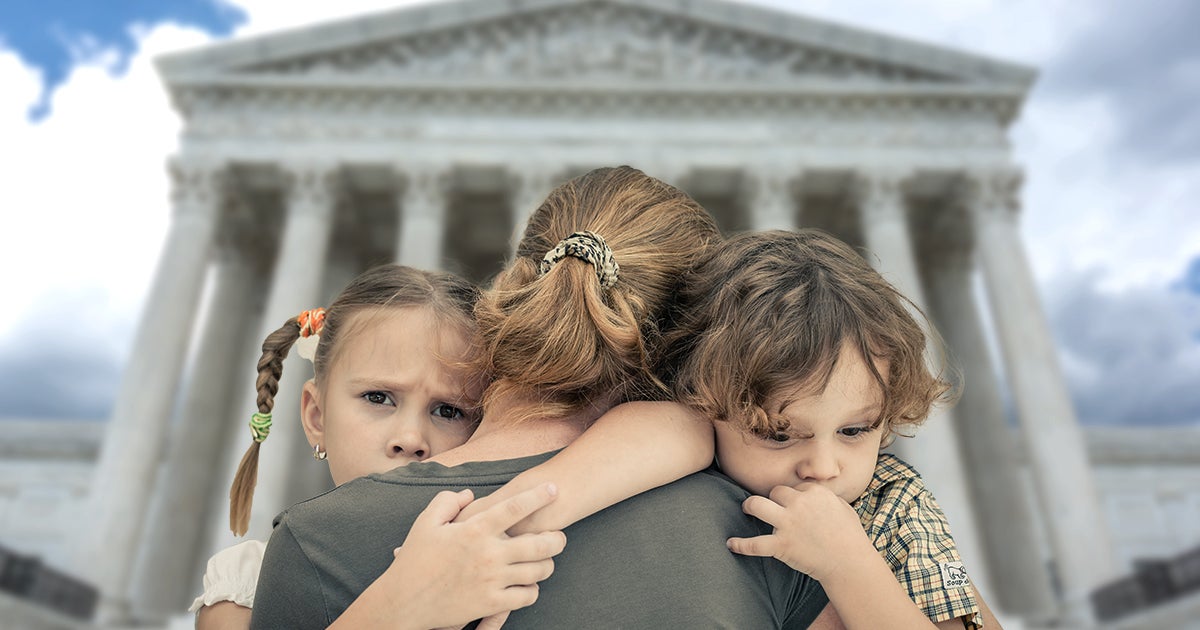
by Jorge Gomez • 3 minutes
This week, First Liberty—alongside volunteer attorneys at Baker Botts—asked the U.S. Supreme Court to hear a parental rights case that centers on a key legal principle. Blake Warner is seeking to represent himself and his child before a court in a matter against the School Board of Hillsborough County, Florida. The court was willing to allow him to represent himself, but not his child, because he’s not an attorney.
“Parents know what is best for their children and should be able to represent them in court,” said First Liberty President, CEO and Chief Counsel Kelly Shackelford. “Preventing parents from representing their children deprives parents of their constitutional right to make critical decisions concerning the care, custody and control of their kids.”
The formal legal term is “pro se” – which simply means the right to represent yourself in court without an attorney. Blake brought two lawsuits pro se in federal court on behalf of himself and his minor child. He sued the school board alleging it engaged in racially discriminatory districting practices. The court, however, directed Blake to “appear through a lawyer” if he wanted “to appear as plaintiff on behalf of his minor child and assert his child’s claims.” The court emphasized that “Warner may assert pro se claims on behalf of himself only,” and not on his child’s behalf.
“Forcing parents to hire a lawyer in every case, whether doing so is warranted or not, puts courts in between children and their parents. This is unacceptable,” said Aaron Streett of Baker Botts. “Barring a child’s access to the courthouse simply because her parent cannot afford, or does not trust, a lawyer is not fair and should not be tolerated.”
That’s why First Liberty is asking the Supreme Court to review that decision. We argue it infringes on multiple fundamental rights: a parent’s right to make critical decisions for his child, and a child’s rights to access the courts and do so without a lawyer.
First Liberty supports the right of parents to make decisions about what’s best for their children. By protecting parental rights, we can protect religious freedom. At a time when families across the country are being targeted for exercising their constitutional rights and raising their children consistent with their faith, parents are often left with no choice but to go to court to seek relief. A key legal aspect is the right of a parent to stand up and fight on behalf of their kids.
As part of our mission to protect religious freedom, First Liberty frequently goes to court to defend the rights of parents and their children. Parents have a right to raise their children consistent with their religious beliefs. The First Amendment undeniably protects that right.
Parents who choose a religious education or school for their kids should be free to do so without discrimination. That’s why we’re fighting two major federal court cases in California and Maine to ensure families are treated fairly and are not penalized for selecting a faith-based school or curriculum.
Parents also have a right to know what their children are learning in school—and to opt them out if they’re exposed to materials or courses that violate their religious beliefs. First Liberty is representing two families in southern California who were told by a school district that they could not opt their children out of books promoting radical gender ideology. In a similar case, we secured a win for several families in Minnesota who were denied opt-out requests for their kids from LGBTQ material. The school district reversed course, which was a huge win for religious freedom that continues to impact elementary, middle and high school students.
Parents have a constitutional right to raise their children as they see fit. There is perhaps no right more deeply rooted in our nation’s history and tradition than the right of parents to direct their children’s upbringing. It is among the oldest liberties recognized by the Supreme Court.
The power to decide whether a lawyer will represent you, or whether you’ll represent yourself, is a choice that is no different from the many other decisions parents make on behalf of their children. When a court forces someone to get an attorney, it disregards the strong constitutional presumption that a parent knows best. The choice to proceed pro se is a constitutionally protected exercise of parental discretion.